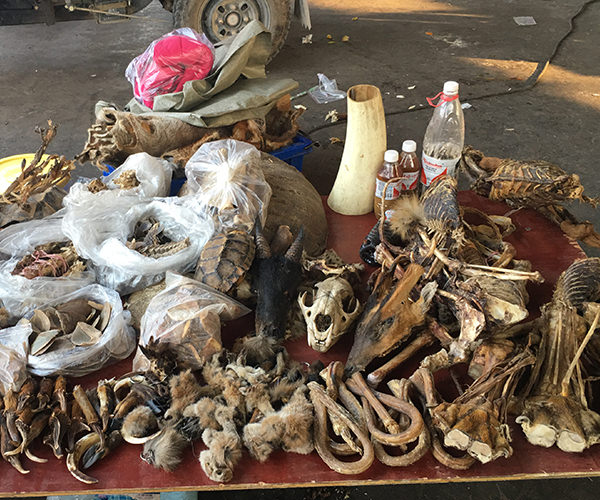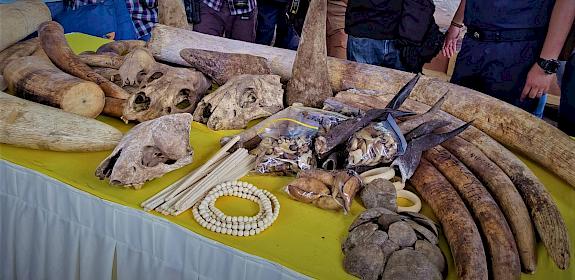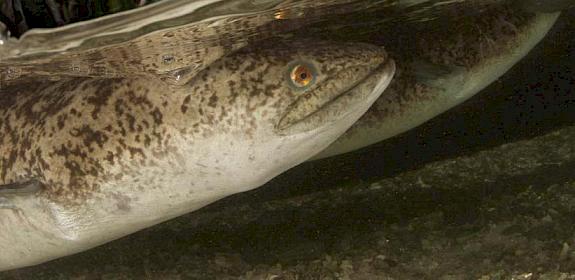Golden Triangle under spotlight as illegal wildlife trade hub
Bangkok, Thailand, 2nd November 2017—Tigers, elephants, bears and pangolins are four of the most widely traded species in the Golden Triangle—the border area where Thailand, Laos and Myanmar connect—according to a new report.
Rhinos, serow, Helmeted Hornbill, Gaur, leopards and turtles round out the list of threatened species that are openly sold in a region that is Ground Zero in the illegal wildlife trade.
The list is based on surveys by TRAFFIC and WWF of illegal wildlife markets, shops and restaurants. They represent species frequently seen for sale in a criminal trade that threatens wildlife across Asia and into Africa. A major driver of the trade is tourists from China and Viet Nam traveling to areas such as MongLa and Tachilek in Myanmar, and border areas such as Boten and the Golden Triangle Special Economic Zone in Laos.

“Illegal, unregulated, and unsustainable trade is driving wild populations of hundreds of species into endangerment, not only in the Greater Mekong but around the world,” said Chrisgel Cruz, Technical Advisor on Wildlife Trade for WWF-Greater Mekong. “Border areas like the Golden Triangle are where this trade thrives.”
Many of Asia’s poached and farmed Tigers pass through the Golden Triangle, where they end up in tiger wine, on dinner tables, in dubious medicines or as luxury items and jewellery. The trade in live elephants, elephant skin, combined with continuing demand for ivory, is threatening elephant populations from Asia to Africa. Bear farms are rampant across the region, where both Sun Bears and Asiatic Black Bears—mostly captured in the wild—are kept in cages while their bile is collected for traditional medicine and folk remedies.
African rhinos are being poached at the rate of three per day to feed the demand for their horns in places such as Viet Nam, where it is mostly consumed as a symbol of wealth. Pangolins are in high demand in China and Vietnam for their scales. The Helmeted Hornbill has a solid bill casque that is carved as an ivory substitute. Demand from China has led to a dramatic decline in populations, especially in Indonesia.
The goat-like serow is highly prized for its meat and body parts, which are used in traditional medicine in Laos. Leopards are now poached for their skin and skulls, which are found in high numbers in the markets of the Golden Triangle. Turtles are widely sold, both alive and as decorative objects. Finally, the world’s largest species of cattle, the gaur, is declining globally owing to demand for its impressive horns and habitat loss.
TRAFFIC is working with WWF and local NGO partners, governments, the private sector and enforcement authorities to address illegal wildlife markets in the Golden Triangle and beyond, and is encouraging increasing enforcement and penalties for illegal wildlife crime, as well as sharing data so authorities know where the trade is concentrated.
TRAFFIC's expertise in wildlife trade issues will underpin our collaboration with WWF as we mount a comprehensive effort to address trans-boundary wildlife trafficking in this critically important region.
James Compton, Senior Programme Director with TRAFFICWWF is also providing support to the first line of defence against illegal wildlife trade—the rangers who put their lives on the line trying to protect endangered species from poachers. Critical needs include basic equipment, training and high-tech equipment to match the sophistication of the organized criminal gangs behind the trade.





